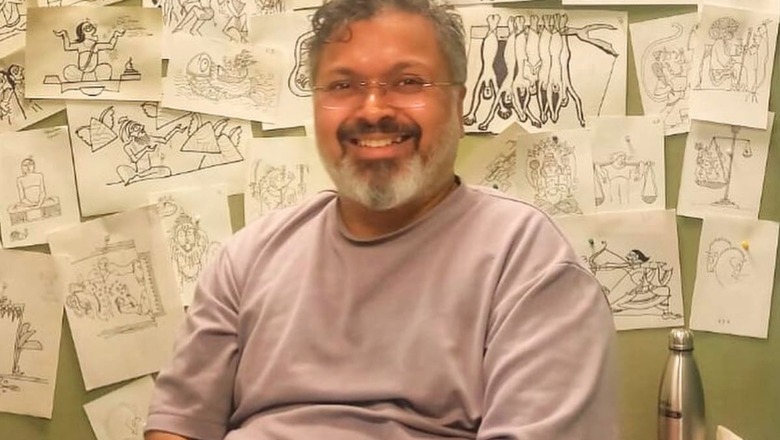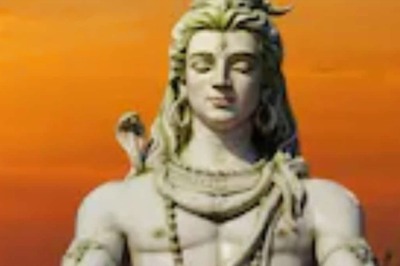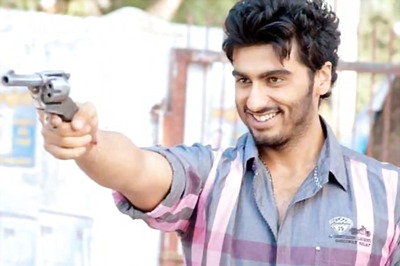
views
Devdutt Pattanaik has impressed readers and listeners far and wide with his ability to not just being able to trace back mythological tales and bring them to light but also for presenting them in a manner that is relevant in contemporary times. His prolific and powerful storytelling has pushed several into trying to analyse the myths about us and around us and society as a whole.
In an exclusive conversation with NW18, Pattanaik talks about his recent audiobook, ‘Veda 360’, his prior works, the inspiration behind them, his process of making mythology relevant, the relevance of myths, perceptions around Indian mythologies and much more.
Read On-
The last few podcasts that you worked on, Krishna 360 and Ravana 360 were well-received by the audience. You have a brand new one called ‘Veda 360 Degrees’. The topics that you have worked on are widely different from one another, as a storyteller how do you transition from one tale to the other?
That’s an excellent question. It is said that when Vyasa composed, compiled and organized the Vedas, he was told by Brahma to make them accessible to the common man by turning them into stories. This gave rise to the Ramayana, Mahabharata and Puranic stories. I’ve spent most of my life focused on these Puranic stories. However, now I’m moving from the fruit to the seed. The Veda, Krishna, and Ravana 360 degrees were the fruits, and Veda 360 is the seed. So, being in the same worldview, it makes moving from one topic to another fairly simple.
Could you please give us an insight into your latest work and tell us about what triggered it?
Audible has been fantastic in giving me a lot of freedom and it enables me to experiment with complex new ideas. As the title suggests, the podcast offers a 360-degree view of the Vedas. Now a 360 degree is shorthand for Pradakshana, which is a traditional Hindu practice where we go around a deity or a temple. We try to appreciate the deity in a complete and holistic way. I realize that many people nowadays use words like Vedas very casually, without quite understanding what it means. There is no simple book out there. This podcast was designed to help people understand Veda, Vedanga, and Vedanta. So that they could understand concepts like yagya. Also, there are stories related to rishis, rajas and various kinds of women. There are stories related to plants and animals. There are also stories related to what is called the Aryan migration. There are questions about this in the media and not much clarity, so, I decided to work on this project.
While working on the podcast, was there any one bit of the narrative that truly moved you and a part that you will hold onto for a while?
I think while working on the podcast, the one thing that struck me was the stories of women. We forget that there are 1000 verses in the Rigveda composed mostly of men. They talk about the rishikas and the female rishis, but their part is less than 5% of the entire compilation. However, there are stories of women like Lopamudra, who seeks her husband’s attention. There is the story of Urvashi, who got tired of her husband and moved away from him, while her husband begs her to come back. Thus, in the oldest Hindu scriptures (Vedas), we have stories of women seeking a husband’s attention, and a woman who is bored of her husband’s attention. I think that tells us so much about Indian society, which existed 3000 years ago. I also realized that nobody wants to talk about these stories. They see Indian women in a one-dimensional way, which is very tragic.
For contemporary readers, how would you want to describe the importance and impact that Vedas hold even to this day?
Vedas talk about feeding the gods, the ancestors and ourselves. We often forget that life is about food and feeding. We use words like success and failure but what we really seek is nourishment. I think that is the biggest lesson that the Vedas have for us.
What do you want listeners to take away from Veda 360 Degrees?
I think it is great that Audible is helping me reach a larger and different audience because I want them to understand that the Vedas are not something magical and mystical. They elaborate ideas that connect to their basic needs like eating and nourishing themselves. The Vedas also talk about nourishing others.
As a storyteller how do you make sure to make your narrations whether through your writings or audiobooks or podcasts about mythology, impactful for young readers and listeners?
I try to make my writing as simple as possible. It deals with issues that contemporary people face. I do not believe that ancient literature is something magical or something that does not deal with day-to-day issues of human life and human society. This is one of the fundamental ideas that I have. We are not very different from our ancestors, our technology withstanding. Therefore, their stories will still have information that will throw light on many issues that we still face today. Yesterday’s stories do have the power to throw light on issues that we face today.
Do you face a certain amount of difficulties while narrating a mythological tale? If yes, how do you get past those?
The problem with narrating mythological tales does not really lie with the storyteller as much as with the story listener. Listeners have certain assumptions about stories, either based on their own prejudice or their limited reading. For example, they have a way in which Krishna or Ravana is seen. But when you actually look at the vast scriptures, we find many different ideas in them. People are even confused by fiction writers who try to project their own fantasies as tradition, which is unfortunate. They try to use their own political agendas through mythological fiction, which is even more unfortunate. My aim is to try to understand what the ancient scholars were trying to communicate and make it accessible to the youth today. I try very hard to keep my view out of these stories, and that is a challenge.
How different is audio as a medium and the creative process of creating a podcast as opposed to writing a book?
It is very different from writing, illustrating, and lecturing, it requires a different level of preparation. One has to work with sound engineers, sound studios, software etc. to create an audiobook or podcast. However, the oral retelling of a story is a way of communication that is ages-old. For thousands of years, Indians preferred the oral transmission of stories and ideas. It is nothing new for me. It has its own advantages and disadvantages. While writing a book, I can move between ideas easily, because it is written content and it can be referred to easily. This is a difference from an oral narrative. That proves to be a challenge.
In terms of the Vedas, you had to get your facts right before you could work on the project. What was the process that you followed?
There’s a vast amount of information, and lots of scholars have done lots of research on Vedas. You have lots of books, and lots of academic papers, and I have been studying these things for the last 20 years. So getting the facts is not that difficult. The problem is that some facts counter each other. Some interpretations counter each other, and sometimes lines are obscure and I am not sure what they mean, therefore, it becomes a challenge.
What according to you is the importance of the different Vedic traditions that existed and some of which still do? Do you personally believe that readers and listeners in today’s day and age should be keen on knowing more about the social customs and beliefs that existed? What are some of the key learning that one can take from them?
People are keen to understand what is veda? What is Vedanga? what is the difference between a Veda and a Shastra? What is Yagya? So these are basic beliefs that people need to know. We also need to know there will be some traditions which are Orthodox. I usually do not involve myself with orthodoxy. I’m more interested in the general reader. I am interested in the general reader’s curiosity about Vedic traditions. There are many practices of the past that can be valued today, but there are certain practices of the past that need not be valued today. We must understand the Vedas were composed at a time when we were a pastoral, agrarian society and today we live in a technological and digital world. Therefore, at a material level, we cannot correlate the two worlds but at the emotional level, we can.
What makes the mythology genre still so relevant to the youth of today?
The mythology genre is relevant to human beings everywhere, not just young people. One of the reasons that fantasy, history, and science fiction stories find such a large fan following these days. I mean, Thor is now a very successful movie franchise based on stories from Scandinavian mythology. You see, science curtails the imagination. But humanity has created diverse societies only through imagination. Imaginary ideas like God, Rebirth, Justice and Equality create our society.
What kind of perception do you want Indians to have about the mythologies that exist?
Ever since humanity began thinking they have been puzzled by existential questions. They tried finding answers by creating stories and myths. But what they do not realise is that they are not required to fully understand the complexities of life. Mythology is a medium through which we help people appreciate life. Even the most educated person on earth, a Nobel Laureate in Physics or Chemistry may not understand the mysteries of life absolutely. The mysteries of life shall remain, forever. When we unravel the stories of the past, we get closer to some clarity. Maybe this clarity brings us some peace.
What are some of the key differences between mythology and religion that one should take note of?
Religion focuses on monotheism. While mythology is wider; it deals with polytheism, monotheism and atheism. It is not applicable to just religion, but to Nationalism, Secularism and other ideologies like Marxism, Capitalism, and Communism. Mythology is basically somebody’s truth or subjective truth or cultural truth. It is different from the objective truth that science pursues.
What lies ahead of you, are there any new stories that are currently brewing in your mind?
There are always stories brewing in my mind. I just need time to figure out the framework in which I can put them. Currently, I’m working with Audible on creating a series on unknown stories of women and Indian mythology.
Read all the Latest Lifestyle News here
















Comments
0 comment